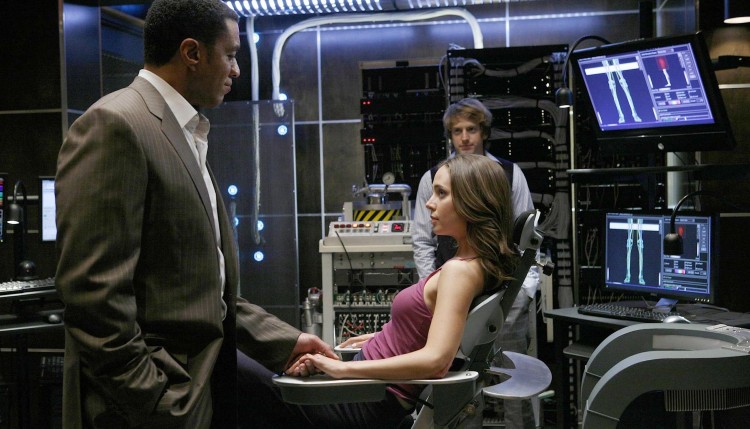
CONFERENCE TALK: The Futures of Work and Self: Fluid Humanity and Laboring Identities in Contemporary Science Fiction
Though a sudden flight cancellation forced me to miss my own panel at the Society for Literature, Science, and the Arts conference in Dallas, my friend and former colleague Andrew Pilsch was kind enough to deliver my paper for me (off of his iPhone, I’m told, which is an impressive feat in and of itself). Responding to the conference theme of “Fluid,” I read the increasing necessity of encompassing myriad laboring selves (as, for instance, in the common alt-ac dictum to pick up new skill sets, fields, discourses, and jobs so as to make oneself indispensable while the possibilities of academic employment continue to crumble) through the science-fiction series Dollhouse, the premise of which involves a sort of hybrid brothel/temp agency whose inhabitants/laborers are made into clean slates, to be imprinted with different personalities and characteristics when they are hired out. Here’s the abstract:
In a historical moment that responds to economic crisis and widespread un- and underemployment by normalizing the imperative for job-seekers to be all things to all people, the capacity to move fluidly between and across identity categories becomes legible primarily as another vector of exploitation. As communication technologies make “work/life balance†seem a naïve and ahistorical fantasy—enabling workers to labor from home, vacation, transit, or other ostensibly non-work environments and thereby making inevitable the expectation thereof—the imagined relationship between labor and self is recalibrated for maximum efficiency. These technological regimes, mediated and propagated by capital, re-tether work and self not by facilitating a personal investment in work on the part of workers with intrinsic reason to care about that work, but by collapsing the boundaries between spaces of work and non-work life, and thereby the boundaries between working and non-working selves.
Recent science fiction, I argue, articulates the years in the immediate wake of the 2008 financial crisis and its attendant economic catastrophes as a pivotal moment in this particular history. From the 2009 American television series Dollhouse, in which a company hires out “blank slate†human beings temporarily imprinted with specific identities and skill sets for short-term engagements with clients, to the 2013 Canadian show Orphan Black, in which a set of human clones become aware of what they are and of the corporate-technological networks in which they are bound up, science-fictional discourse diagnoses the instrumentalizing of fluid humanity by technocapitalist regimes of just-in-time, on-demand, perma-temp labor.
Though the conference paper wasn’t quite able to encompass both Dollhouse and Orphan Black, I hope to revisit this project in article-length format at some point in the near future.